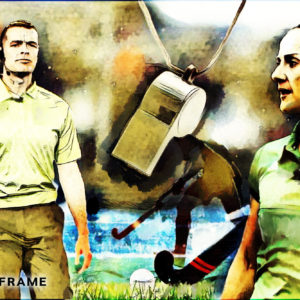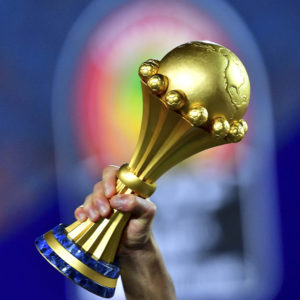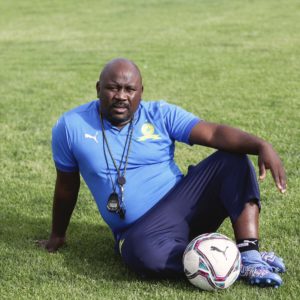Roger De Sá is already looking beyond the Afcon
Although it will be special to again be a part of a winning squad at the African tournament, the Egypt coach says his players have their eyes firmly on the prize of qualifying for the World Cup in …
Author:
10 January 2022
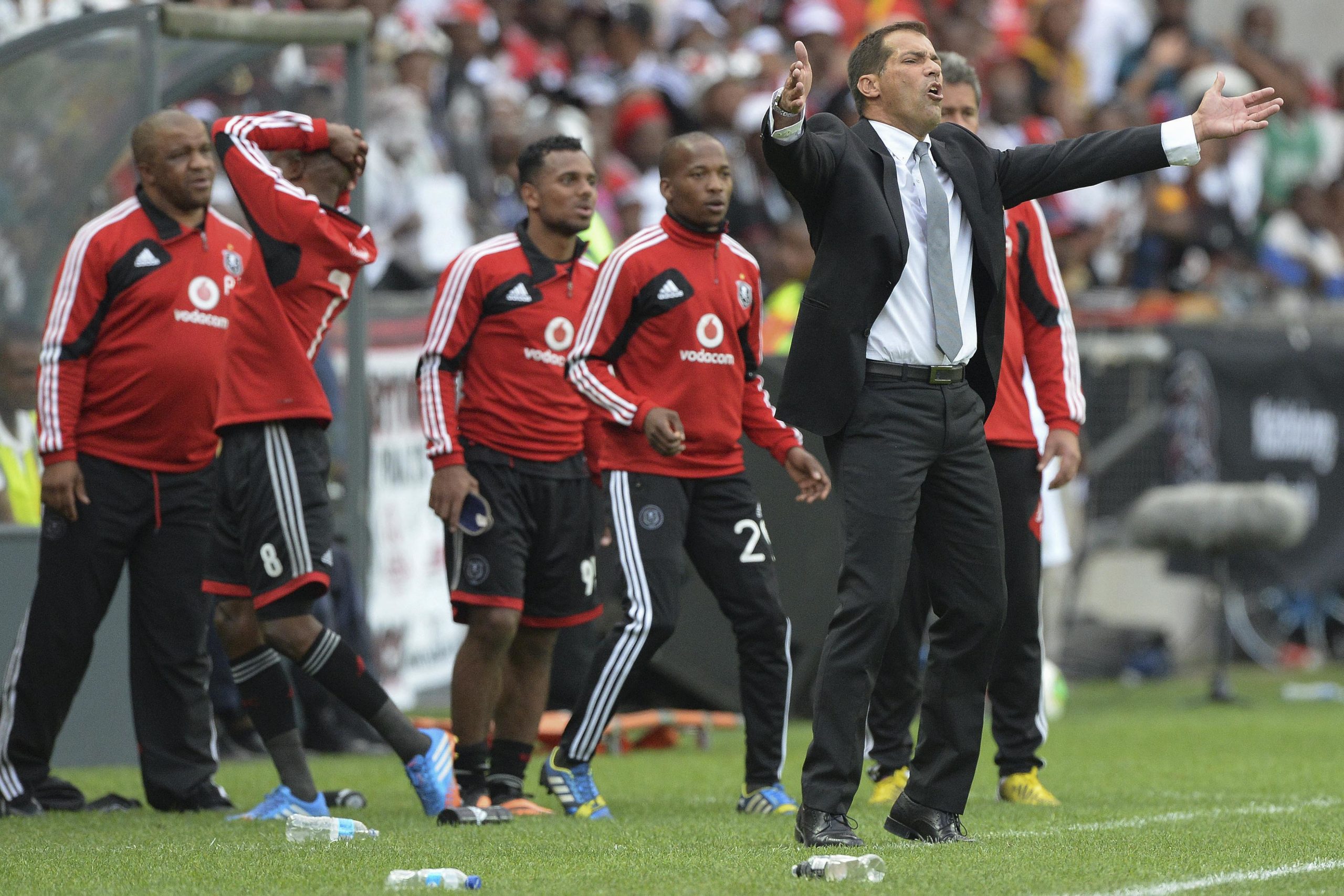
Roger De Sá is not giving too much thought to the possibility of setting a South African record of sorts at the 2021 Africa Cup of Nations (Afcon), which kicked off on 9 January and runs until 6 February. An Afcon winner with Bafana Bafana back in 1996, albeit as an unused substitution, the former goalkeeper could become the first South African to win a second gold in Africa’s premier competition should he help Egypt become champions for an eighth time.
De Sá is coach of the Pharaohs. They are managed by Carlos Queiroz, with whom he has long been acquainted and who, like De Sá, was born in Mozambique. Though Egypt have not won the biennial Afcon since 2010, the North Africans are always among the favourites at the showpiece as the most successful nation in the competition.
“Of course, one does think about such things,” De Sá says of the potential to add a second winners’ medal to his tally, “but I don’t think that far ahead. At this level, you take it step by step, match by match. It is about who we play next. We start the tournament against Nigeria – that’s our focus. Let’s try to win that and then beat Sudan and Guinea Bissau. Let’s try to win our group. So I don’t think as far ahead as winning the tournament. It has never been my way. You can’t get too far ahead of yourself because things can change drastically.”
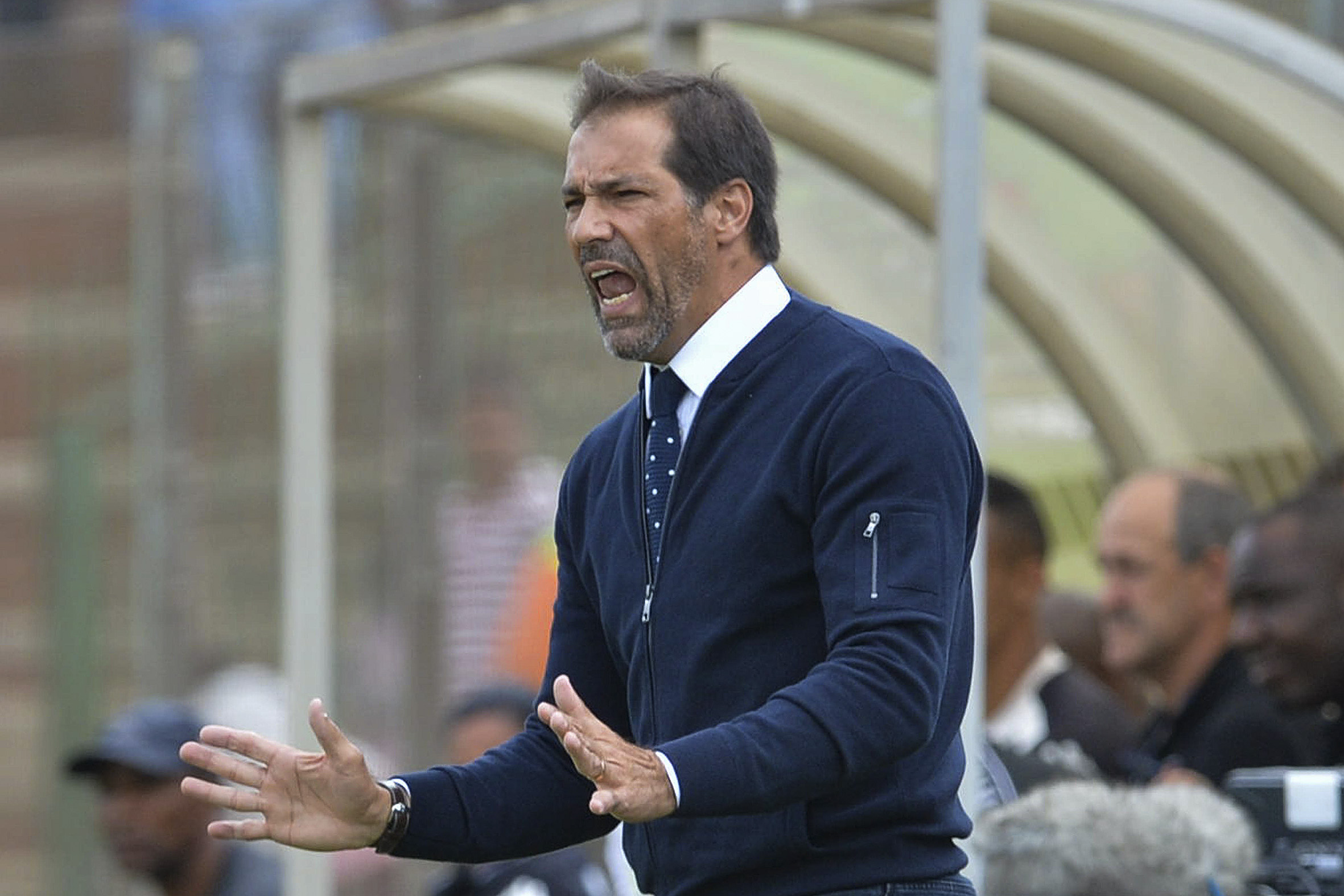
De Sá is just grateful to be in the position he is and credits those who have helped him get there. “For me it is always about the next game. And at the national team level, in particular, every match is like a cup final because it is unlike club football, where you are playing in a league. But, of course, you do want to do well and if that second winners’ medal comes, it will be appreciated.
“I remember when I became a triple international [he got national colours in basketball, indoor football and football], it just happened. It was not as if I had planned it all. I just played the sports and excelled and then I was a triple international, but it was not as if I’d set myself a goal to achieve that.”
The same goes for coaching Africa’s most successful football nation. It was not planned at all. “I was getting on with my life, working at Cape Town All Stars enjoying the game while also doing some business on the side. Then, of course, Carlos called and asked me what I was doing because he might take up an opportunity and wanted to know if I’d be available.
“The next day he said he’s got the Egypt job and everything happened so quickly that in no time I was in Cairo with him. I had a discussion with my family and we agreed that I should go for it. It was the kind of opportunity I wouldn’t miss.”
Egypt’s unique setup
About a quarter of a year into the job, De Sá says he is enjoying it. “Egypt has been good so far, a lot of work but we were well received. It has been a nice experience so far and I’ve been helped by having previously been here when I coached [Orlando] Pirates. It has been a lot of work, challenging but nice.”
That it is a lot of work is because his position with the Pharaohs is a rather serious one. Granted, Queiroz is the man in charge, but it is the former BidVest Wits coach who does most of the work with the players.
“It is quite an odd setup. Carlos heads up the whole national team. My title is actually national team coach and I have three assistants below me, three local guys. So there’s a lot more to my position than people seem to think. I do all the training sessions, so I work more closely with the players. And the good thing with Carlos is that he lets you work and then steps in only when he has to. He’s very experienced as far as national teams are concerned, having taken a number of countries to the World Cup, so it is great to be working with him.”
Related article:
What is it like coaching a star of the stature of Liverpool’s Mohamed Salah? “Pretty simple really,” De Sá says with a laugh. “You can’t teach him too much, can you? He is a prime example of a true professional. He is the biggest name and we know he has the ability to do magic with the ball, given his speed and skills.
“He’s obviously a superstar who is known worldwide, but he is very normal, still listens to us coaches and does what you ask of him. He doesn’t miss a session and is always on time for any team gathering. He’s a perfect professional and contributes like everyone else … And he’s a nice human being, a humble and down-to-earth guy who is pleasant to work with despite all his achievements. He is one of the boys.”
Salah is not the only star in the Pharaohs, with many other big names playing for the likes of Al Ahly and Zamalek. How has De Sá found them compared with other stars he has coached?
“Funny enough, I find the Egyptian players exceptionally committed and very professional. They don’t complain too much. They are almost too obedient. I sometimes wish they could be a little more rebellious because they do everything you ask them to do. Sometimes you’d like them to be a bit fiery … They go by the rules and perhaps it has to do with their religion, I don’t know. But they have an amazing work ethic. In the time I’ve been here, I’ve not encountered any negativity or problems.”
Setting priorities
Capturing the Afcon title would make the experience all the more special, but continental glory is not of paramount importance to the Egyptian Football Association, De Sá says. “Of course, they are regarded as the best on the continent even though they’ve not done well in the last 12 years or so. The Egypt national team has had a bit of a dry patch, and obviously as a country they are hurting from that and they are trying to turn things around.
“So expectations are always high. But we are ranked sixth on the continent now and while it would be great to succeed at Afcon, our priority number one is to qualify for the World Cup. That’s our main objective. We managed to win our group and give ourselves a realistic opportunity [to book a ticket to Qatar 2022 in the upcoming play-offs for the five African places]. The World Cup has become the big issue [in Egypt]. But for now we are going to Cameroon to do well. We had a good run at the Arab Cup in Qatar, where we lost to Tunisia in the semifinal via an injury time own goal after we’d created opportunities and missed them. But we played well and that’s what’s encouraging us for Afcon.”
Related article:
De Sá is pleased to be working again with Queiroz, who is a tough taskmaster. “Carlos is a workaholic and it is brilliant to be learning from him given his experience. We were first together with Bafana in 2002, and I look back and realise that we were the last ones to qualify South Africa for the World Cup and that is something to be proud of. We have a pretty good Bafana record, even though we were fired after being knocked out in the quarterfinals in Mali at the 2002 Nations Cup.
“He has gone on to do amazing things since then as he went to two World Cups with Portugal and Iran, and he was with Colombia for two years as well. Besides at Bafana, I worked with him at Man[chester] United doing some scouting for him in Africa. After that I worked with him for the Portugal national team in 2010 as his assistant during the World Cup. He invited me to go with him to Iran, but I said no because I was contracted and my kids were little then, so I wanted to be around and pursue my own little career.
“He understood and we stayed in touch, not like being buddy buddies, but the odd message and that was it. This time around, when he got the chance in Africa, he thought I was best placed to help him out given I have had some continental experience coaching Pirates in the Champions League.”
Related article:
Does he sometimes pinch himself to see if he really is the coach of Africa’s most successful nation? “I do have moments when I go wow, I am here. For example, when we were in Qatar for the Arab Cup, it was unbelievable that we were playing at the state-of-the-art World Cup venues against some of the world’s top coaches and surrounded by all the top Fifa officials. And you’ve got to go, this is it, this is what we dream of. But then you kind of go, it is pretty much as it was back at home because a game is just a game at the end.
“You find that you complain about the same poor refereeing decisions made by the renowned Fifa referees, just like you would have done on some poor pitch back at home in a first-division match. So I always remind myself to do just what it is I’d been doing at home because I got to this level based on what I’d done at home. So it is not like I just woke up and won the lotto, but there has been a journey that has prepared me for this.”

